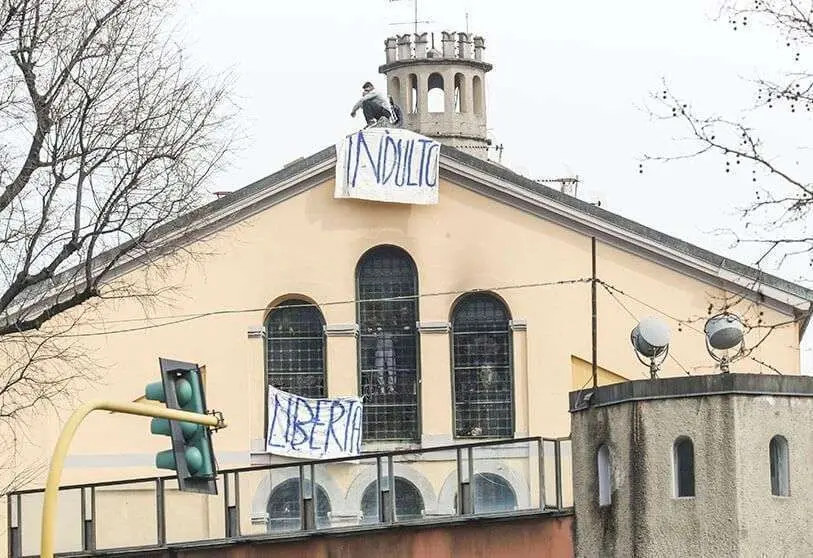La Piovra spreads its tentacles

There is already a net winner in Italy from the pandemic: the mafia, which has managed to get 376 of its members out of prison and is preparing to do the same with another 456. It took many years of investigation, the fruit of the hard work of Italian society itself in general and, in particular, of the enormous effort made by the police, judges and prosecutors, which has been stepped up even further since the car bombing of Judge Giovanni Falcone in 1992.
However, taking advantage of the ravages of the coronavirus, serious riots erupted in Italian prisons at the beginning of last March, when Italy was emerging as the global epicentre of the pandemic with the meteoric rise in infections and deaths. There are strong suspicions that the riots, which resulted in the deaths of 13 inmates and the injury of around 50 prisoners and guards, were instigated by the four major mafia organisations based in the regions of Sicily (Cosa Nostra), Calabria ('Ndrangheta), Campania (Camorra) and Puglia (Sacra Corona Unita).
The riots ceased and shortly afterwards the Department of the Penitentiary Administration (DAP), which is part of the Ministry of Justice, sent 376 mafia members home under the pretext of carrying or spreading the coronavirus. Immediately, numerous voices from the judicial, police and journalistic sectors condemned the fact that the release was the result of a state-mafia negotiation, the unwanted but more predictable result of which would be the reconstruction of their criminal networks. In the direct spotlight is the Minister of Justice, Alfonso Bonafede, of the populist 5 Star Movement, who has been willing to deny the alleged plot.

But Bonafede has three big names who doubt his denial: Maria Falcone, sister of the murdered judge, who claims that "the bosses are back in charge"; Nino Di Matteo, the anti-mafia prosecutor, who has revealed that Bonafede had denied him the leadership of the DAP after promising it to renew the anti-mafia struggle; and the director of La Reppublica, Mauricio Molinari, who is constantly accumulating and publishing evidence that would pay for the certainty of the negotiations. The most eloquent is to ask why they would be less at risk of spreading the pandemic in their homes, and surrounded by their people, than in the very severe regime of isolation they were subjected to in the prisons. A solitary confinement whose main purpose was to prevent the mafia bosses from running their clans from their cells as happened in the past. Another anti-mafia prosecutor, Federico Cafiero De Raho, was overly suspicious: "It is very strange that detainees who are forced to serve their sentences in total isolation are released.
Among the "jewels" released and confined to their homes are confessed killers like Francesco Bonura, who was Bernardo Provenzano's strong man; the no less bloodthirsty Vincenzo Iannazzo, of a 'Ndrangheta, now considered the richest and most powerful mafia organization in the world, or Franco Cataldo, the kidnapper of the child Giuseppe Di Matteo, whom he strangled and dissolved in acid in retaliation for the accusations of his father, a pentito (repentant), who reported and proved many of the mafia's crimes. Names all of which continue to send shivers down the spine of people who have once suffered directly or indirectly from mafia warnings.

The alarm and scandal have been so great that Minister Bonafede has committed himself to issuing a decree law that will return the released prisoners to prison. There is widespread scepticism that he will finally put it into practice and that, if he finally does, it will be when those who have enjoyed a few days of the company of family members and faithful hitmen have had time to reactivate the mafia networks so patiently and laboriously destroyed.
It was at the end of last century that, first in Italy and then in many other countries, including Spain, a television series called La Piovra made a sensation, describing how the octopus' tentacles reached the most remote corners of the State with their terrible suction cups. The fear now arises that La Piovra will emerge much stronger from the crisis caused by the pandemic.
The carabinieri have already detected both seduction operations, such as providing food to needy families, and usurious interest loan operations and threats to small landowners and businesses to get hold of them at derisory prices. Operations in the most classic mafia style: obtaining the support, silence and consequent servitude of the entire population of "their" territory, and the forcible subjugation of those who still believe that the State is protecting them sufficiently.

